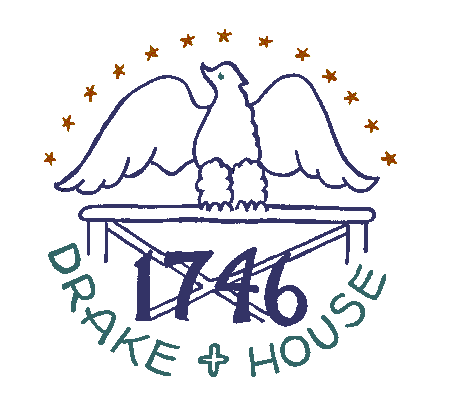 |
|||||||||||||||||
|
|
|||||||||||||||||
|
|
|||||||||||||||||
 |
||||
ANOTHER CLOCKMAKER OF ELIZABETHTOWN was Aaron Lane. He was a silversmith, and some of his clocks are to be distinguished by the silver dials he made. He worked on clocks between 1780 and 1793, with his
brother-in-law, Ichabod Williams, furnishing the cases. On the clocks with painted dials his name appeared across the top of the face, Elizabethtown at the bottom. The clocks of Joachim Hill must have been in high
favor during the many years he worked at Flemington, in Hunterdon County. Those bearing his name are to be found quite frequently, almost always in good condition. He was born November 25, 1783, on a farm in Amwell,
near Flemington, the son of Isaac and Mary Hill. The manner in which he acquired his trade, and where, are not known but records indicate that he first worked about 1800. As a maker of eight-day clocks, Hill was known
over the Jersey countryside for more than fifty years. His place of business was a brick building on Copper Hill, directly across the street from where he lived with his wife and seven children. It was a casting shop,
with a huge bellows and an engine he made himself for turning out parts of the brass works for his clocks. Hill purchased many of the cases for his clocks from James Toping, a contemporary of the period, in Chester.
The dials he also bought, but he made the movements and did the assembling. He undertook to repair his clocks and observed the custom of journeying on horseback over a large section of countryside to keep them in
running order. Local history records him as a man of very short stature, with dark eyes and heavy black hair. Late in life he removed to Newark to live with a daughter and, following his death at the age of
eighty-six years in 1869, he was buried in the Presbyterian Cemetery at Flemington. Hill's clocks are inscribed with the name and address of the maker on the lower part of the dial, directly beneath the place
indicating the days of the month. In contrast to those of other makers, the dials have figure to indicate the hours and at the top they are designed for declaring phases of the moon. The cases of mahogany , with
decorative inlay, have well-turned columns of good proportions along the sides, and the top finishes off with a conservative scroll adorned with three brass balls. At the top and rear of all Hill's clocks there is an
opening directly behind the gong to improve the tone of the strike. Hunterdon County had three other early clockmakers, although none of them appears to have left so permanent a record as Hill. The first of the trio
was George Rea, who was born on a farm near Pittstown, Hunterdon County, in 1774. Where he learned his trade is not known, but he had a shop for many years until his death in 1838. The only clock definitely attributable
to him is dated 1796. He is buried in the Baptist churchyard at Flemington. Richard Hooley worked in Flemington for a short time as a clockmaker after his arrival with a group of English colonists in 1796. Later he
went to Cambridge, Massachusetts, and died there in 1840. During the same period Thomas Williams had a clockmaker's shop in Flemington, and it is claimed by historians of the county that his apprentice was Joachim
Hill, but this has not been established definitely. His place was on what is now William Street, a thoroughfare named after him. So much is known from records of old deeds and advertisements, but concerning his birth or
death nothing has been learned. William J. Leslie is known to have worked in Trenton beginning in 1799. Prior to that time he was for a short period in New Brunswick and came originally from Philadelphia, where there
was a clockmaker of he same family name. In Trenton, Leslie first established quarters in a shop on Warren Street previously occupied by another clockmaker, named Joseph Yates. From advertisements in Trenton
newspapers of the time, it would appear that Leslie remained in business until 1817. Some time after that year he opened a tavern in the same city. Leslie was in partnership both in New Brunswick and in Trenton with a
man named Williams, and newspaper advertisements stated that the clock cases were made by the Egertons. One notice in the Trenton Federalist
included the rather humorous announcement that he was not "from London, Paris or Boston, but a native of New Jersey." The same advertisement offered places for two apprentices, with "boys from the country preferred." Between 1807 and 1810 Leslie was a town marshal and assessor. He died in Trenton, at sixty-two years of age, in 1831.
|
||||
Contents of any advertisements associated with this page are NOT endorsed in any way by |
||||